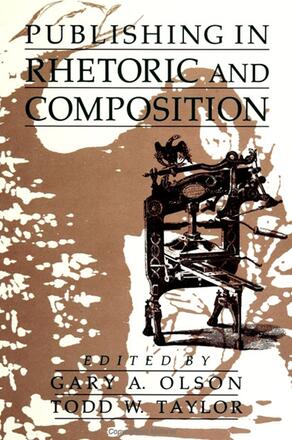
Publishing in Rhetoric and Composition
Alternative formats available from:
Eminent scholars discuss the politics and practices of generating scholarship in rhetoric and composition studies.
Description
Publishing in Rhetoric and Composition is a collection of essays about the politics and practices of generating scholarship in rhetoric and composition. The contributors to this book, many of whom are current or past editors of the discipline's most prestigious scholarly journals, undoubtedly have their finger on the pulse of composition's most current scholarship and offer invaluable insight into the production and publication of original research. They discuss publishing articles and reviews, as well as book-length projects, including scholarly monographs, edited collections, and textbooks. They also address such topics as how composition research is valued in English departments, recent developments in electronic publishing, the work habits of successful academic writers, and the complications of mentoring graduate students in a publish-or-perish profession. An inviting and helpful tone makes this an ideal textbook for research methodology and professional writing courses.
Gary A. Olson is Professor of English and teaches in the graduate program in rhetoric and composition at the University of South Florida. His two most recent books are Women Writing Culture (with Elizabeth Hirsh) and Composition Theory for the Postmodern Classroom (with Sidney I. Dobrin), also published by SUNY Press. In 1993, the Council of Editors of Learned Journals presented Olson with the International Award for Distinguished Retiring Editor for his decade of work as editor of the Journal of Advanced Composition. Todd Taylor teaches writing and composition theory at the University of South Florida, where he is senior editor as well as on-line editor of JAC: A Journal of Composition Theory.
Reviews
"This distinguished collection is the best book I know on how to publish scholarship in rhetoric and composition—and why one should. It will also have great value for those outside rhetoric and composition, since much of the advice and information is easily transferable. Publishing in Rhetoric and Composition, however, is far more than a "How To" book. It also marks a distinct stage in the professionalization of a discipline that is certain to become increasingly more important in the coming years. Moreover, this collection of essays by leading specialists in the field provides a remarkably comprehensive survey of what is going on in this field at the moment. " — J. Hillis Miller, from the Foreword